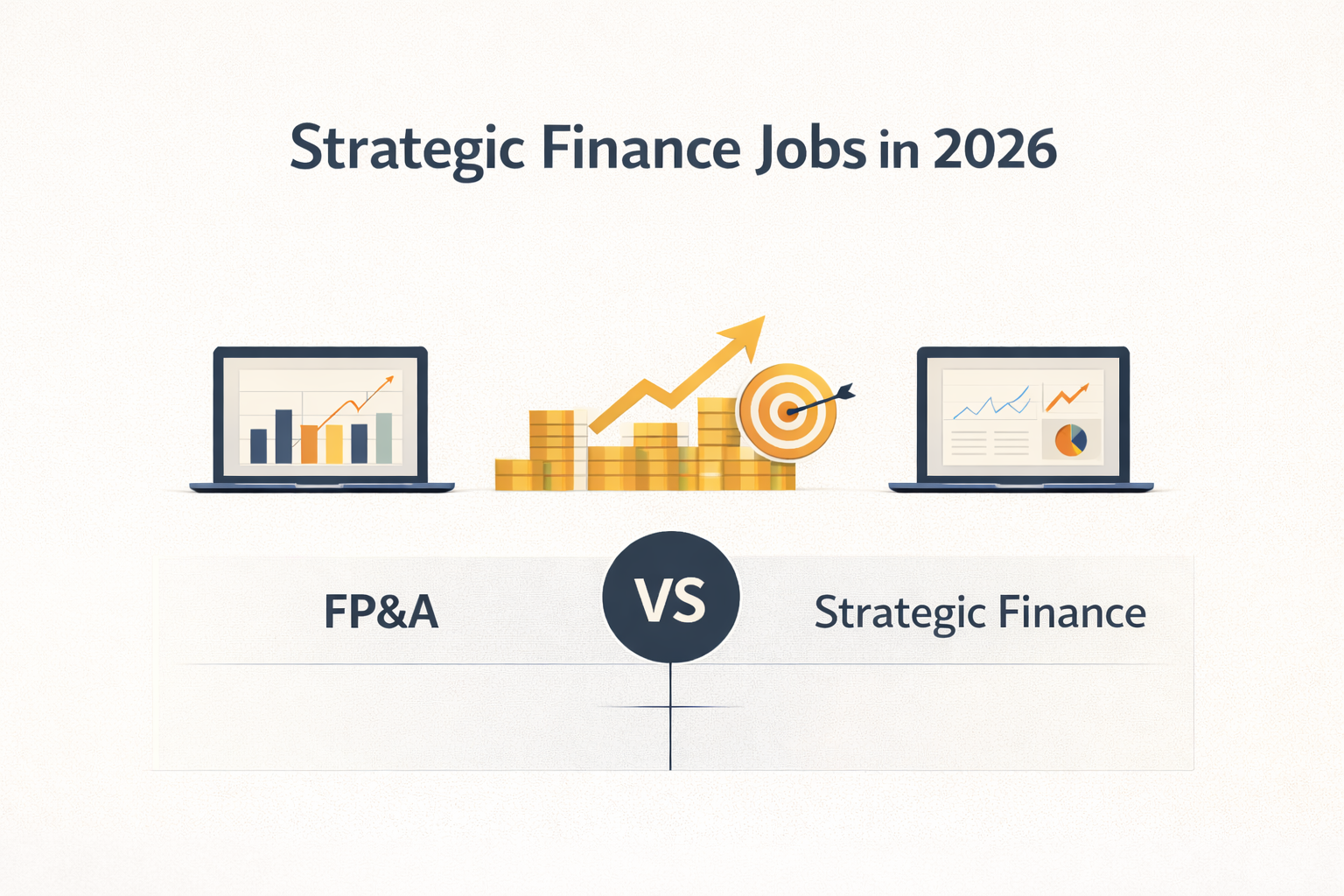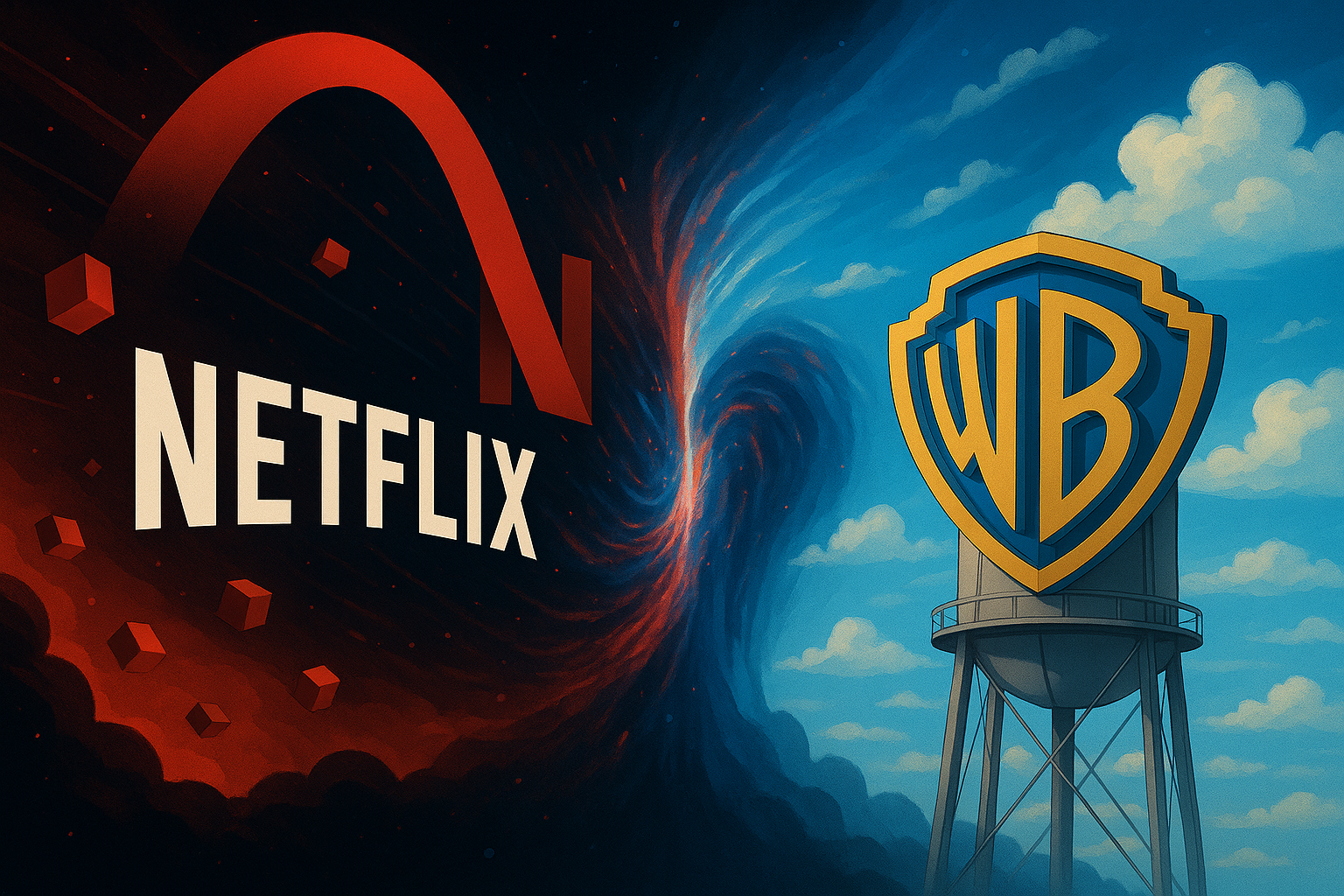A Modern Guide to Making the Right Investment in Your Career
When deciding how to accelerate your finance career, you’re likely weighing two primary paths: a traditional MBA or a modern finance bootcamp—specifically, a Strategic Finance Course. It’s a critical decision. Time, money, and your future earning potential are all on the line.
But here’s the truth: the finance world has changed. Traditional MBA programs are no longer the only—or even the best—path to breaking into competitive roles like Strategic Finance, FP&A leadership, corporate development, or venture-backed startups.
This article breaks down everything you need to know to make a confident decision. We'll define what Strategic Finance really is, unpack the ROI on MBA programs, contrast that with the leaner, faster path of a Strategic Finance course, and show you what’s possible if you choose wisely.
What is Strategic Finance?
Strategic Finance is the intersection of data, decision-making, and long-term business value. It’s not accounting. It’s not just financial planning. It’s about working directly with product, marketing, and executive teams to help businesses grow sustainably.
Strategic Finance professionals don’t just track numbers—they shape outcomes. That could mean:
- Forecasting cash flow to ensure healthy burn
- Modeling pricing strategies that impact user behavior
- Partnering with sales to set targets and compensation plans
- Helping CEOs raise capital or evaluate M&A deals
These are high-impact roles that sit at the table with leadership. And they require a very specific skill set: technical modeling, business intuition, and communication. The kind of skills that traditional MBAs only sometimes touch—and bootcamps, when designed right, can teach directly.
Why People Still Do MBAs (and What They’re Hoping to Get)
Let’s be fair. There’s a reason top-tier MBA programs like Wharton, HBS, and Stanford GSB have built global reputations. People pursue them for a mix of:
- Brand: A degree from a top school opens doors. It’s a credential that signals intellect, drive, and network.
- Career switch: Many use an MBA to pivot into finance or consulting from other industries.
- Access to employers: On-campus recruiting from large firms is still a real thing.
- Time to explore: Two years to meet people, refine goals, and rebrand yourself.
If your goal is to enter private equity, investment banking, or top-tier consulting and you didn’t go to a target school as an undergrad, an MBA can still serve you well—especially from the M7.
But the costs are staggering.
The Real ROI on an MBA
Let’s talk about the numbers. ROI on MBA programs varies widely depending on:
- The school
- Your prior work experience
- Whether you receive a scholarship
- And what job you land afterward
But here’s a rough reality check:
- Top 10 MBA tuition: ~$85,000/year
- Two years of lost income: ~$150,000 (if you’re earning $75K pre-MBA)
- All-in cost: Easily $250,000+
In return, if you land a post-MBA role in investment banking or Big Tech finance, your starting compensation could be around $140K–$180K base, with bonuses that bring it to ~$200K–$250K total. That’s solid—but it takes years to truly “earn back” the cost.
And that assumes you land the job. It doesn’t account for risk, stress, or opportunity cost. Nor does it reflect how hiring is shifting away from pedigree and toward demonstrated skill.
Finance Bootcamps: What They Are and How They Work
A Strategic Finance bootcamp or course is a lean, focused training program designed to get you job-ready in a fraction of the time—and cost—of an MBA. These programs are usually:
- 8–16 weeks long
- Project- and case-based
- Taught by practitioners, not professors
- Designed for real-world jobs like FP&A, Strategic Finance, BizOps, or Fintech Finance
Rather than studying organizational theory or macroeconomics, you’re diving into:
- Revenue modeling for SaaS, fintech, and marketplaces
- Headcount planning and cash runway
- Fundraising, investor updates, and board presentations
- SQL for finance, Excel modeling, and scenario analysis
In short: you’re building the exact skills you’ll use on Day 1 in a Strategic Finance job.
The Strategic Finance Course: A New Kind of Launchpad
At Strategic Finance Careers, we’ve built a course that flips the traditional model on its head. The Strategic Finance Course isn’t just a bootcamp—it’s a career accelerator built by operators who’ve led finance at companies like Uber, fintech lenders, and PE-backed startups.
Here’s what sets it apart:
- Self-paced video curriculum: Learn on your schedule. No fluff. Just the skills you actually need on the job—cash runway modeling, SaaS revenue builds, SQL for finance, investor-ready decks, and more.
- 1-on-1 mentorship: You’re matched with a mentor who works in Strategic Finance today. They’ll review your models, challenge your thinking, and coach you through interviews and real projects.
- Built for outcomes: This is not theory. It’s not busy work. It’s built to get you hired—or promoted—into Strategic Finance roles that matter.
And the best part? It’s just $2,000. No loans. No two-year commitment. Just career-altering skills and mentorship that actually get you there faster.
Whether you’re in accounting, consulting, banking, or analytics and want to break into Strategic Finance—or you're already in finance and want to uplevel your strategic chops—this course gives you the most personalized way to learn and launch forward.
The Numbers: ROI of a Strategic Finance Course
Let’s run the same math we did for the MBA.
- Tuition: ~$2,000
- Lost income: $0 (you can do it while working)
- All-in cost: ~$2,000
- Job outcome: Strategic Finance or FP&A role at $100K–$160K/year
Your ROI could be 50x+ within one year if you’re breaking into a $120K job from a $60K base.
You’ll also start earning earlier, with fewer loans and less financial stress. And if you want to move into a growth-stage company, this kind of targeted prep is more aligned than an MBA ever was.
“But What About the Network?”
The biggest defense of an MBA is the network. And there’s truth in that. A Stanford or Wharton alumni connection might help you raise funding, change industries, or find lifelong friends.
But let’s ask the hard question: Do you need to spend $250K to make friends?
Strategic Finance communities are growing fast—and they’re built online. SFC, for example, connects you with hiring managers, fellow students, mentors, and coaches. People collaborate, share roles, refer each other, and grow together.
It’s not about rubbing shoulders at happy hours. It’s about relevant, engaged peers who are solving the same problems and willing to help.
Changing Hiring Patterns: Skills > Degrees
The finance hiring landscape is evolving. While MBAs used to be the main gateway, companies are increasingly prioritizing:
- Demonstrated ability (real modeling skills, SQL fluency)
- Industry knowledge (how SaaS or fintech business models actually work)
- Communication and insights (can you drive decisions?)
Hiring managers don’t have time to guess if your MBA coursework taught you how to model a burn curve or build a cohort LTV analysis.
They want to see it.
And finance bootcamps make that easy. You graduate with a portfolio of real-world projects, and often even recruiter connections baked into the experience.
Who Should Still Consider an MBA?
An MBA might still be the right fit if:
- You’re trying to switch industries entirely, e.g., from engineering to private equity
- You’re aiming for consulting or investment banking, especially without a target undergrad
- You’re deeply motivated by brand and prestige
- You want to build a startup in the long run and value the broader exposure
But even then, it's worth asking: Is there a faster, more direct way?
Many ex-bankers and ex-consultants are now skipping the MBA altogether and jumping into roles at late-stage startups, VC firms, and tech companies—because they have the real skills to create impact from Day 1.
Who Should Seriously Consider a Strategic Finance Course?
You should look at a Strategic Finance bootcamp if:
- You’re in accounting, FP&A, banking, or consulting, and want to break into Strategic Finance
- You want a high-impact finance role at a growth-stage startup
- You’re already working full-time, and can’t pause for two years
- You value skill development and mentorship over classroom lectures
- You’re ROI-focused and want to 2x–3x your comp in under 6 months
These courses are designed for modern finance professionals who want to lead. Not in 5 years. Now.
Success Stories: Real People, Real Outcomes
Let’s make it real.
- A former auditor used a Strategic Finance course to land an FP&A manager role at a Series B SaaS startup—nearly doubling her salary
- A Big 4 consultant pivoted into Strategic Finance at a unicorn marketplace—without going back to school
- A data analyst went from a support function to driving pricing strategy, thanks to hands-on SQL and cohort modeling projects
These aren’t edge cases. These are the norm when you align your training to actual job demands.
The Mindset Shift: MBA ≠ Mastery
An MBA gives you access. But a Strategic Finance course gives you fluency. You don’t just learn what finance is—you do it.
You know how to:
- Build a dynamic revenue model
- Partner with product on margins
- Forecast runway across multiple geographies
- Present to a CFO with clarity and confidence
It’s the difference between “I studied finance” and “I’m a strategic finance operator.”
That mindset—and capability—is what sets candidates apart in today’s market.
Conclusion: It’s Time to Rethink the MBA
If you’re evaluating how to grow your finance career, the answer isn’t automatic anymore.
A $250K MBA may offer prestige—but it’s slow, risky, and uncertain. A $2K Strategic Finance course, on the other hand, is fast, targeted, and ROI-positive within months.
It’s not just about saving money. It’s about aligning your investment with your outcomes.
So the next time someone asks, “Should I do an MBA?” you might ask them:
“What are you really hoping to get out of it? Because if it’s a Strategic Finance job, there’s a faster, smarter way.”
Final Word: Join the Future of Finance
If you're serious about breaking into high-impact finance roles—without the time, debt, or uncertainty of an MBA—the Strategic Finance path is built for you.
Our Strategic Finance Course is the only program built by operators, for operators. You’ll get:
- Real-world projects and tools
- Personalized 1-on-1 mentorship
- Access to a vibrant, supportive finance community
- Direct paths into roles that move the needle
The MBA may have been the best path in 2005. But this is 2025.
👉 Start the Strategic Finance Course today →






.png)

